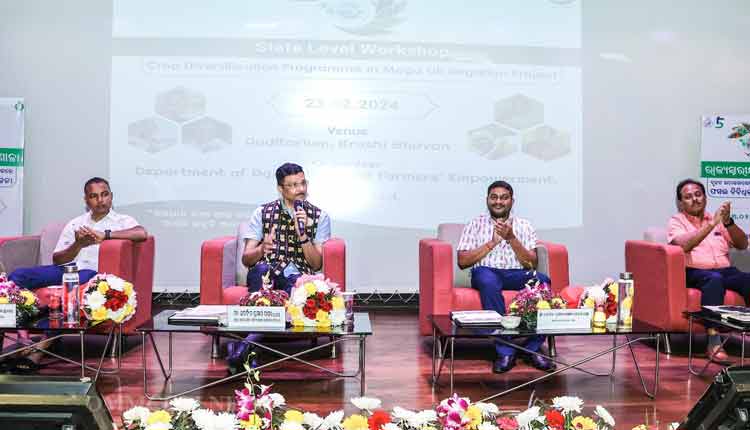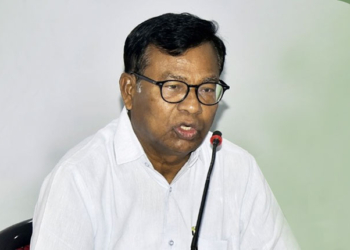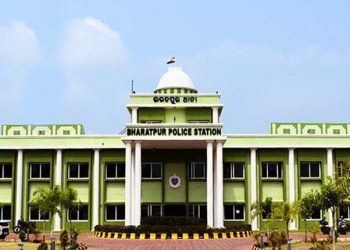Bhubaneswar: Odisha’s Crop Diversification Programme in Mega Lift Irrigation Project (CDP-MLIP) has emerged as a model for sustainable agriculture, surpassing targets and effectively combating the impacts of climate change. The program, which focuses on ensuring nutritional security and boosting farmers’ income, was lauded for its achievements during a State Level Workshop on CDP-MLIP held today at Krushi Bhavan in Bhubaneswar.
Principal Secretary Dr. Arabinda Kumar Padhee stressed the importance of crop diversification in the face of climate change challenges. He emphasized how the initiative not only enhances climate resilience but also addresses nutritional security concerns, tackling multiple agricultural issues simultaneously.
“We are living in an era of climate change. There is a need to design policies, programs, projects, and activities in such a way that mitigates the impact of climate change. Agriculture covers 61.81 lakh hectares in Odisha. Crop Diversification Programme was implemented on over 1 lakh hectares last year and through such adaptation measures, we can mitigate climate change,” said Dr. Padhee.
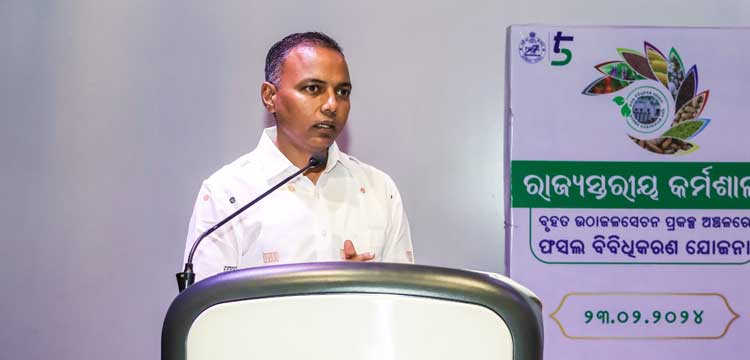
During the workshop, Director of Agriculture & Food Production, Prem Chandra Chaudhary, said that the Crop Diversification target achieved this year is more than 130 percent. He suggested the district officials coordinate with local quality seed dealers to ensure the provision of high-quality inputs, further enhancing program outcomes.
Director of Horticulture, Rohit Kumar Lenka, urged officials under his Directorate to take ownership of the program for its successful implementation. He stressed the importance of reaching end-users and facilitating effective marketing channels for farmers to maximize their produce’s value.
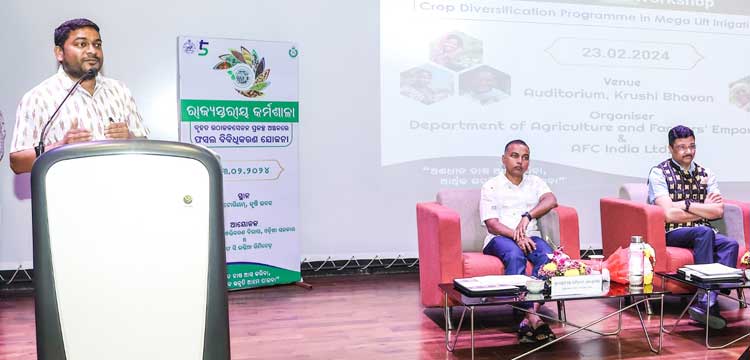
The Odisha government has set up mega lift irrigation projects since 2021-2022 to provide life-saving irrigation to crops in the uplands and midlands of the region by drawing water from rivers and reservoirs. It irrigates the basins of rivers such as Vansadhara, Indravati, Tel, Mahanadi, Brahmani, Baitarani, Rushikulya, Budhabalanga etc. and the lands on the banks of the Hirakud and Rengali reservoirs.
The journey of transitioning from paddy to non-paddy crops began as an experiment on the uplands and midlands in mega lift irrigation projects area of select districts in 2021 and has now expanded to cover 22 districts of the state. These districts include Angul, Bargarh, Balangir, Boudh, Cuttack, Deogarh, Dhenkanal, Gajapati, Ganjam, Jajpur, Jharsuguda, Kalahandi, Kendrapara, Malkangiri, Mayurbhanj, Nabarangpur, Nuapada, Rayagada, Sambalpur, Subarnapur, Sundergarh and Koraput.
Through extensive awareness campaigns involving community engagement, training sessions, and various outreach activities, the initiative has gained momentum, turning into a grassroots movement. The shift towards cultivating non-paddy crops, vegetables, and spices has not only bolstered farmers’ economic well-being but has also led to a transformation in dietary habits, promoting a balanced diet among communities. Furthermore, initiatives such as establishing Bio-Input Production centers and Custom Hiring Centers have contributed to enhancing soil health, reducing farming costs, and providing easy access to agricultural implements.
Financial assistance provided to farmers under this scheme has been substantial, with over 2,22,041 farmers receiving assistance totaling 121.59 crores during the recent kharif season. This has generated significant enthusiasm among farmers, with growing interest witnessed in non-paddy cultivation.
The transition from paddy to non-paddy crops in Mega Lift Irrigation Project areas not only aligns with climate resilience goals but also holds the promise of doubling farmers’ income. It has led to improved water management, increased interest in organic farming, and enhanced financial stability for farmers. Moreover, it has contributed to soil conservation, biodiversity preservation, and ensured nutritional security, thereby underlining its multifaceted impact.




